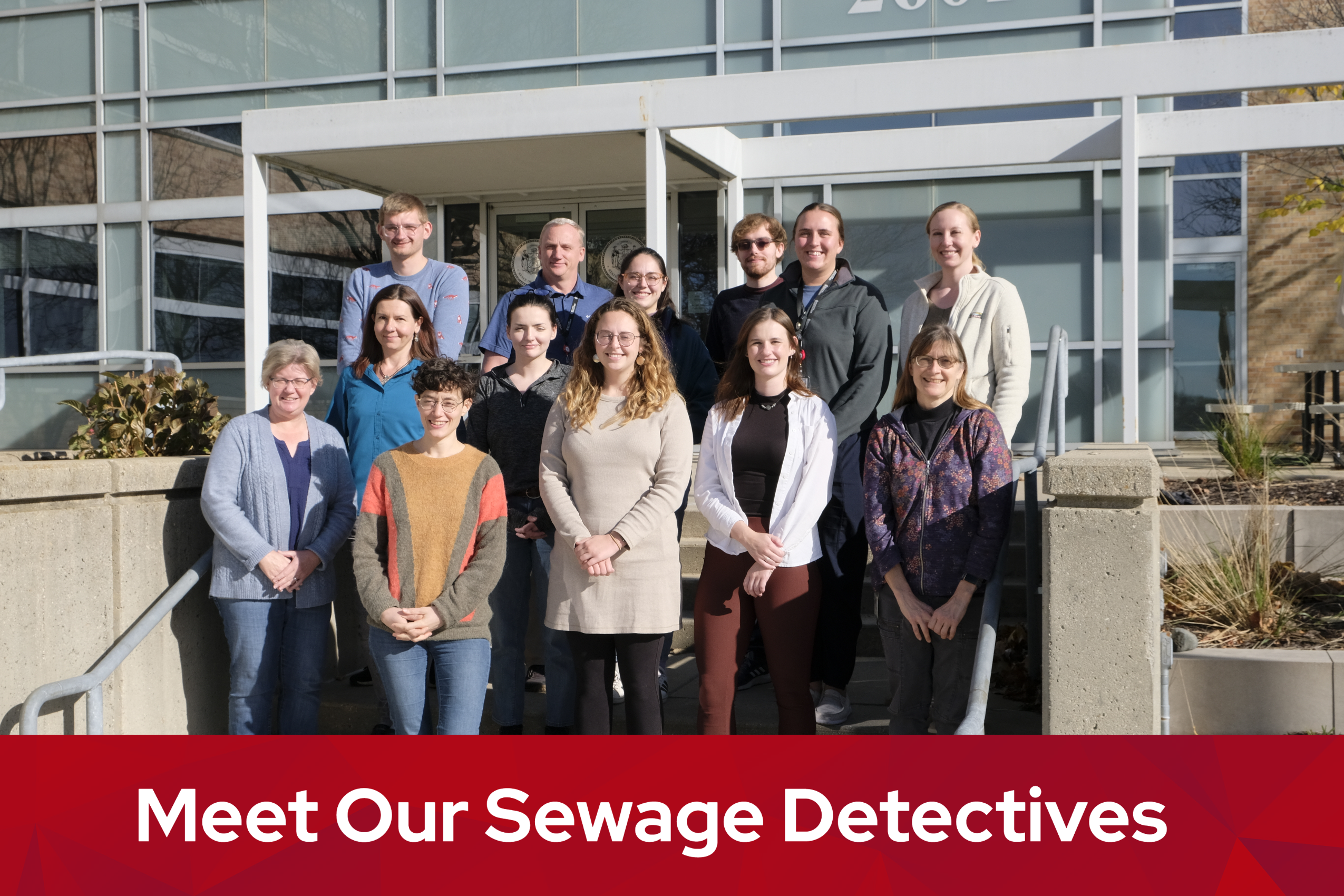Wastewater Surveillance at WSLH and Our Impact on Public Health
Everyone poops — a universal fact that has long provided information on disease spread in communities. For two and half years, the Wisconsin State Laboratory of Hygiene (WSLH) has tracked SARS-CoV-2 and its variants in Wisconsin’s sewage. Our laboratory’s findings in wastewater have provided public health officials in Wisconsin with a more detailed picture of the virus that other forms of testing cannot easily capture. This nuanced data can lead to a timelier public health response to outbreaks in the future.
WSLH Proficiency Testing is a part of the WSLH, a national public, environmental, and occupational health laboratory. We keep you up-to-date on WSLH’s advancements in public health, to lift up our shared work in improving patient care and the overall health of our communities.

During the outbreak of the COVID-19 pandemic, the partnership formed between the Wastewater Surveillance Team and communities across Wisconsin resulted in the creation of a robust wastewater surveillance system. The participation of wastewater treatment plants and municipal workers in the program is crucial for sample collection and data analysis to track SARS-CoV-2 variants. The WSLH team says keeping wastewater treatment plants (WWTPs) enrolled in the program may be the biggest challenge going forward.
“Their [WWTP] participation needs to be better recognized and acknowledged because they are essential to the program,” said Adelaide Roguet, Water Microbiology Scientist at WSLH. “No samples, no data.” As they strengthen their collaborations in Wisconsin, the Wastewater Surveillance Team is working with other surveillance networks in the United States to coordinate a nationwide effort.
The WSLH Wastewater Surveillance Team is expanding its efforts, helping other public health laboratories develop their own wastewater surveillance systems. Last year, the Association of Public Health Laboratories (APHL) released a guide to help public health labs build wastewater surveillance programs. WSLH senior scientist Martin Shafter contributed a significant wealth of information to this guide. He says that the experience of the Wastewater Surveillance Team informed his contributions to this guide. Expanding wastewater surveillance efforts across the United States can help direct public health efforts to lessen the spread of variants.
We are excited about the progress we have made in developing a wastewater surveillance network in Wisconsin,” says Adelaide Roguet, Water Microbiology Scientist at WSLH. “We are particularly excited about following seasonal flu and RSV this winter and adding gastrointestinal and antibiotic-resistance pathogens in the near future.”
Since the beginning of the COVID-19 pandemic, our scientists have understood the importance of wastewater surveillance as an epidemiological tool. One of the unique applications of wastewater surveillance is the ability to find those who carry a completely new virus before it spreads in the community. Nature magazine outlined such findings from the lab’s collaborative effort, detailing the search for a cryptic SARS-CoV-2 variant in Wisconsin. Supporting the expansion of these efforts will be crucial to creating a coordinated testing effort to stop the spread of pandemic outbreaks and test the efficacy of vaccines in the future.
WSLH Proficiency Testing hopes the benefits of the WSLH Wastewater Surveillance program to Wisconsin communities will inspire more laboratories nationwide to join the wastewater surveillance journey. WSLH Proficiency Testing is just one division among a mighty group of public health champions at the WSLH laboratory. We keep you up-to-date on public health advancements at WSLH, shining a bright spot on our shared work to better the health and well-being of our communities.
